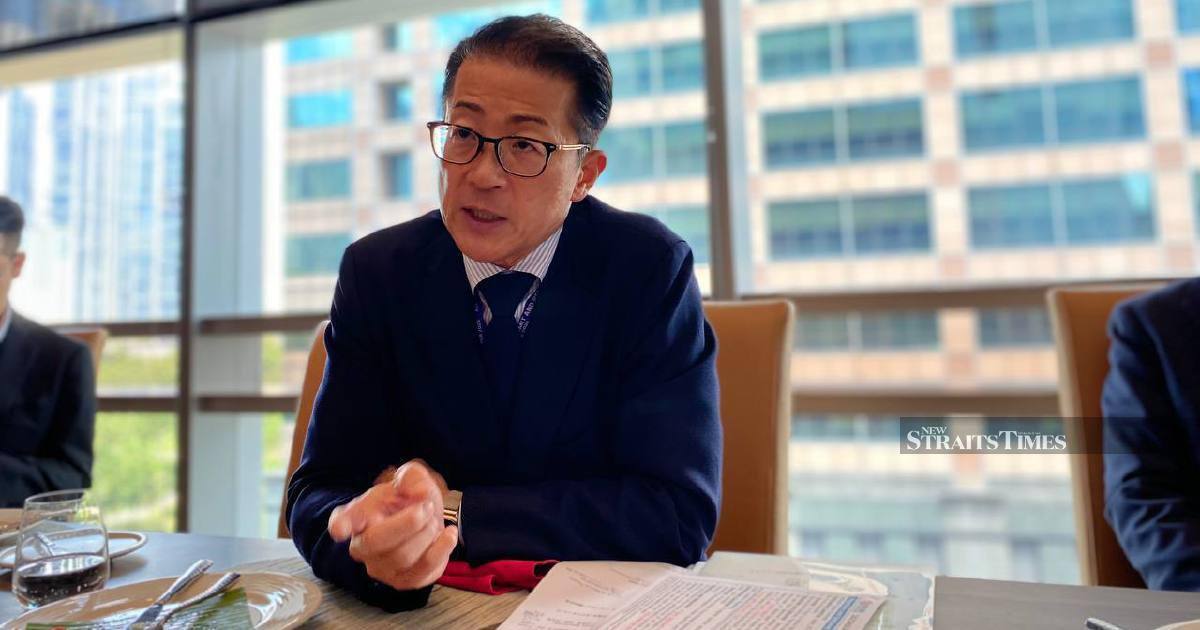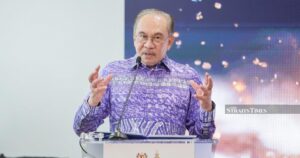KUALA LUMPUR: New Japanese Prime Minister Sanae Takaichi has set a fresh course for Tokyo’s foreign policy, anchoring Malaysia as a key partner in her administration’s bid to deepen Asean engagement through green energy, digital innovation and maritime security cooperation.
The approach, unveiled under Japan’s Free and Open Indo-Pacific (FOIP) vision, signals Tokyo’s renewed push to strengthen regional stability, sustainability and technological progress across the region.
Under her leadership, Japan is expected to strengthen its economic and strategic footprint in Southeast Asia while supporting Malaysia’s drive for sustainable growth, technological advancement and defence capability.
Japanese government spokesman Kitamura Toshihiro said the Takaichi administration’s regional strategy under FOIP would focus on practical partnerships that translate policy into tangible benefits.
“Prime Minister Takaichi is committed to working closely with Asean countries, especially Malaysia, to drive sustainable growth and innovation.
“Our partnership will focus on key areas such as decarbonisation, energy transition and human-capital development,” he said at a media briefing on the sidelines of the 47th Asean Summit.
Toshiro said Malaysia’s strategic location and growing economic influence made it a central partner in Tokyo’s regional engagement.
Under Japan’s Official Security Assistance (OSA) framework, Malaysia has already received unmanned aerial vehicles and rescue boats, and both sides recently concluded an agreement for the supply of a diving-support vessel and other maritime equipment.
Toshiro said these efforts demonstrated Japan’s resolve to contribute to regional peace and stability.
“Malaysia’s location makes it a vital player in ensuring maritime safety between the Pacific and Indian oceans.
“Japan is ready to enhance Malaysia’s operational capabilities to promote regional peace and stability.”
Toshiro added that Japan also backed Prime Minister Datuk Seri Anwar Ibrahim’s efforts in facilitating peace talks between Cambodia and Thailand, and Tokyo would continue providing support equipment for monitoring and humanitarian work.
Japan is also expanding cooperation with Malaysia in green technology, energy transition and decarbonisation, including projects in carbon capture and storage (CCS) and ammonia-fired power generation.
“Through the Asia Zero Emission Community (AZEC), we aim to achieve economic security, decarbonisation and energy transition.
“Malaysia is a key partner in achieving balanced and sustainable development through these initiatives,” said Toshiro.
Both nations are also moving toward signing the Joint Crediting Mechanism (JCM), which promotes carbon-offset projects and the sharing of low-carbon technologies.
Under Takaichi’s administration, Japan is prioritising digital transformation and artificial intelligence as cornerstones of regional cooperation.
“Digital and green are now the most important agendas for both Japan and Asean,” said Toshiro.
“We are introducing the Asean Co-Creation Initiative on AI, aimed at building a safe, secure and transparent AI ecosystem.”
The initiative will support Malaysia’s digital-economy goals and strengthen its AI infrastructure while enhancing cross-border trust in data and technology.
Addressing the importance of technology supply chains, Toshiro said Japan was strengthening cooperation with Malaysia in semiconductor development — a critical sector for both countries.
“Japanese companies are ready to work with Malaysian partners to develop Malaysia-based semiconductor applications and ensure supply-chain resilience,” he said.
He added that Japan aimed to leverage Malaysia’s strong industrial ecosystem and growing AI infrastructure to build a more diversified and secure semiconductor network in Asia.
Tokyo will also continue using trade frameworks such as the Regional Comprehensive Economic Partnership (RCEP), the Comprehensive and Progressive Agreement for Trans-Pacific Partnership (CPTPP) and the Asean–Japan Comprehensive Economic Partnership (AJCEP) to strengthen regional economic resilience.
Toshiro said Japan would collaborate with Asean to strengthen supply chains for critical minerals and support food and financial security through the Asean Plus Three framework.
“Building resilient and sustainable supply chains, especially for critical minerals, is now an essential agenda.
“Japan will work hand-in-hand with Asean, including Malaysia, to secure stable and transparent networks that benefit all partners,” he said.
He said Japan remained committed to supporting Asean’s food and financial security through existing mechanisms like the Asean Plus Three framework, established after the Asian financial crisis to help the region manage economic shocks.
© New Straits Times Press (M) Bhd






